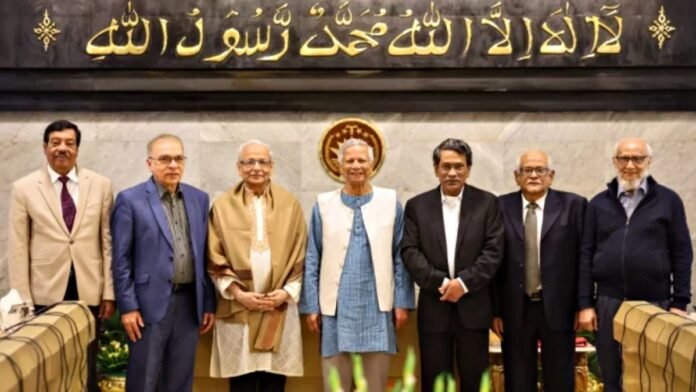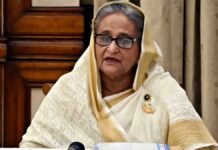
Key Points:
- Major Reforms Proposed: The Constitution Reform Commission in Bangladesh has recommended amending fundamental state principles, including secularism, socialism, and nationalism.
- Parliamentary Restructuring: A proposal to introduce a two-house Parliament with a four-year term and proportional representation has been put forward.
- Prime Minister Term Limits: The proposed amendments suggest limiting the tenure of the Prime Minister to two terms.
- A Tribute to 1971 Ideals: The reforms aim to uphold the values of the 1971 Liberation War, focusing on equality, human dignity, and social justice.
- Interim Government’s Role: The recommendations were submitted to interim head Mohammad Yunus following Sheikh Hasina’s resignation amid student-led protests.
Dhaka: In a transformative move, the Constitution Reform Commission of Bangladesh has submitted sweeping proposals aimed at reshaping the country’s political and constitutional framework. The report, presented to interim government head Mohammad Yunus, suggests key changes to state principles, parliamentary structure, and executive tenure.
These proposals come in the wake of a nationwide student movement that led to the resignation of former Prime Minister Sheikh Hasina, prompting the formation of an interim government to guide Bangladesh through this critical transition.
Key Recommendations of the Reform Commission
1. Amendment of State Principles
The commission has proposed revising the constitutional principles of secularism, socialism, and nationalism, aiming to align them with contemporary aspirations while preserving the spirit of the 1971 Liberation War.
2. Two-House Parliament
A significant structural change involves the introduction of a bicameral legislature:
- Lower House: To be called the National Assembly, with 400 seats.
- Upper House: To be named the Senate, comprising 105 seats.
- Representation in the lower house will follow a majority system, while the upper house will adopt proportional representation.
3. Reduced Parliamentary Term
The proposed system reduces the parliamentary term from the current five years to four years, aiming to enhance accountability and adaptability.
4. Prime Ministerial Term Limits
The commission has suggested limiting the Prime Minister’s tenure to a maximum of two terms, fostering leadership renewal and reducing political monopolies.
Upholding the Ideals of the 1971 Liberation War
Commission Chairman Ali Riyaz emphasized the reforms as a tribute to the 1971 Liberation War, focusing on core values such as:
- Equality
- Human Dignity
- Social Justice
- Pluralism
Riyaz stated, “Our goal is to align the constitution with the aspirations of the people, ensuring these values remain at the heart of governance.”
Background: A Push for Change Amid Political Turmoil
The proposed amendments follow a period of political unrest in Bangladesh:
- Student Movements: Protests led by students demanded significant political and constitutional reforms.
- Leadership Change: Sheikh Hasina’s resignation paved the way for an interim government, tasked with implementing reforms and stabilizing the nation.
Potential Impact of the Reforms
The proposed changes signal a significant shift in Bangladesh’s governance model:
- Strengthened Democracy: The introduction of a two-house Parliament promotes broader representation and balanced decision-making.
- Modernized Governance: Limiting the Prime Minister’s tenure reflects a move toward democratic inclusivity and prevents political stagnation.
- Economic and Social Equity: Emphasizing the values of the 1971 Liberation War ensures a continued focus on equality and justice.
The proposed constitutional amendments reflect Bangladesh’s effort to modernize governance, enhance accountability, and honor its rich historical legacy. If implemented, these reforms could set the stage for a more inclusive and progressive future.





















































